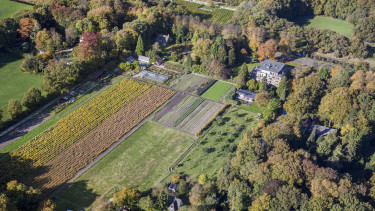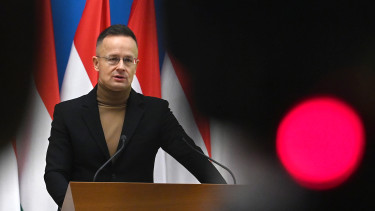OTP Bank first in Hungary to join Energy Efficient Mortgages Initiative
The Magyar Nemzeti Bank (MNB) is pleased that OTP Mortgage Bank joined an European platform named Energy Efficient Mortgages Initiative (EEMI) on 8 October, as the first Hungarian credit institution.
As of today, 63 lending institutions have committed to test the implementation of the final energy efficient mortgages framework into their existing product lines and processes. These 63 lending institutions are joined by 47 supporting organisations from throughout the EU and by 17 national, European and International institutions brought together in the Advisory Council, which provides advice and guidance to the pilot lending institutions on the development of energy efficient mortgages.
EEMI consists of three parallel projects, the “Energy efficient Mortgages Action Plan” (EeMAP), the “Energy Efficient Data Protocol and Portal” (EeDaPP) and the “Energy Efficient Mortgage Market Implementation Plan” (EeMMIP) and is funded via the European Commission’s Horizon 2020 Programme.
EEMI sets out to encourage energy efficient housing construction and investment in real estate to increase energy efficiency by extending preferential loans. Participants can contribute to the improvement in risk management in green mortgage borrowing, issues of green mortgage loans and the reduction in private energy consumption and the related greenhouse gas emissions in Hungary through cooperation with international partners and Hungarian banks involved in the project.
The MNB joined the EEMI Advisory Board in July 2019, and also provides an incentive for energy efficient lending in the domestic scene by offering a capital requirement reduction from 2020. The MNB deems it important that a growing number of Hungarian credit institutions should participate in energy-efficient residential lending even through an EEMI membership in the future, to demonstrate the fact that they consider their role important in environmental sustainability via their financial products and services.
The MNB announced its Green Programme on 11 February 2019 to mitigate the ecological, economic, and financial risks arising from environmental anomalies and issues and to enhance Hungary’s competitiveness in a climate-friendly manner jointly with financial market participants.
The energy efficiency of buildings is a real opportunity for the green economy, which is therefore included in a package of proposals for economic stimulus measures related to COVID-19, published by the MNB recently. A large-scale reconstruction of the domestic stock of residential and non-residential buildings could contribute to the fight against climate change by creating strong demand for the Hungarian construction industry.












